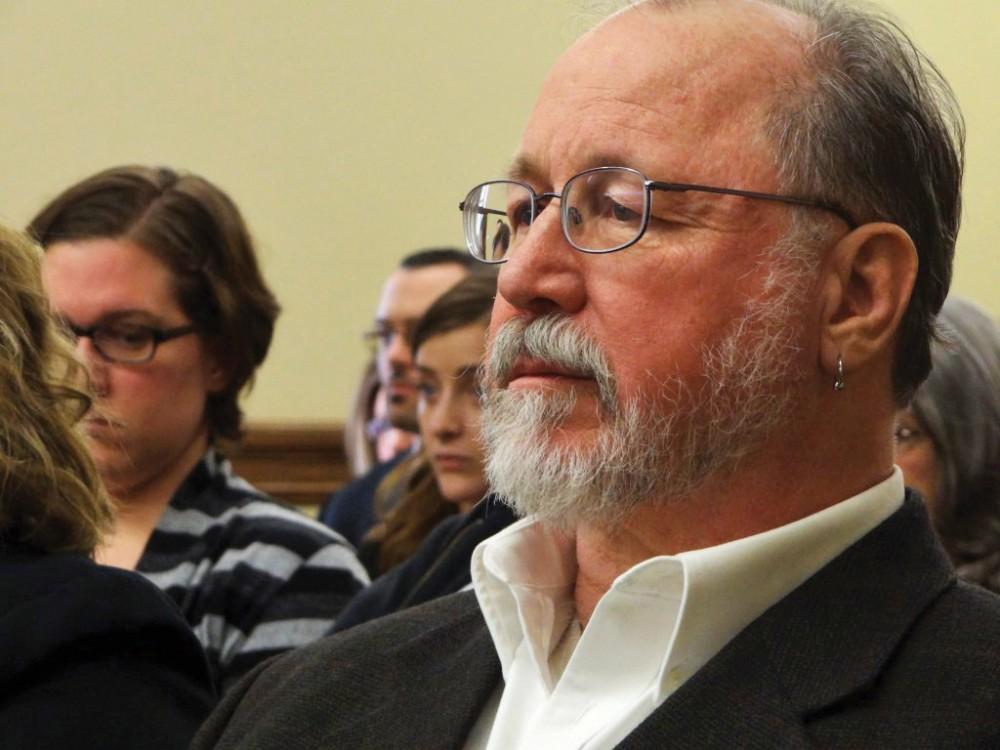Death row exoneree to speak at GV

GVL / Courtesy – witnesstoinnocence.org Ron Keine
Oct 15, 2015
It is not every day that people get the chance to hear someone’s firsthand experience of being wrongfully convicted and sentenced to death row. With the help of Grand Valley State University’s Criminal Justice Student’s Association, Ron Keine, a speaker from Witness to Innocence, will talk about his conviction and his life after being exonerated.
Keine was sentenced to death row in 1974 after being convicted of murder, kidnapping, sodomy and rape of a college student in New Mexico. He was found to have been wrongfully convicted and released in 1976.
“Ron is one of 154 individuals exonerated from death row,” said Kaylee McWilliams, vice president for the Criminal Justice Student’s Association. “It is an honor to just be able to hear one of the very few speak about their experience and how it has treated them after.”
Witness to Innocence is an organization that empowers those exonerated from death row through public speaking, testifying to state legislatures, media work and more. Keine, like all Witness to Innocence speakers, shares his story in hopes of shedding light on the realities of the criminal justice system.
“(The goal is) to make the community more aware of the issues that surround wrongful conviction in our nation and state,” McWilliams said. “It is important for students, especially those who may be interacting in their futures with such issues, that they can hear from someone who experienced this firsthand.
“Something is wrong with our system and we need to be the ones to do something about it,” McWilliams said. “This is an issue facing our society as a whole.”
Wrongful conviction is a fairly common occurrence in our criminal justice system. A study done at the University of Michigan in 2014 suggested a 4.1 percent error rate among cases that are sentenced to death.
“With more awareness of the issue that surrounds wrongful conviction, we can help make a change, and policies can start to be created to help prevent future wrongful convictions,” said Christina Herrod, the secretary for CJSA. “Hearing Ron’s story will help the attendees to understand the consequences a wrongful conviction has.”
Keine will also have time to answer any questions attendees may have.
“We are the future, and in a few short years many of us will be dealing with societal problems just like this one,” McWilliams said. “I feel it necessary to have exposure to it before we enter the workforce. It really does touch us all in one way or another.”
The event offers attendees an opportunity to learn more about the criminal justice system and hear a powerful speech by someone with a unique outlook on it.
“It is important that Ron’s story be shared because no one will ever be able to understand what he or other exonerees went through unless they begin to share their stories,” Herrod said. “Hearing their story firsthand is quite powerful and moving.”
Kathy Bailey, School of Criminal Justice director, will speak in the beginning of the event in an academic sense about wrongful conviction and the problems that it causes for those convicted and the larger problems it causes for society in order to set the stage for Keine.
Light refreshments will be served at the event, which is LIB 100 and 201 approved. The Witness to Innocence presentation will take place on Oct. 20 from 6:30 p.m. until 8 p.m. in the Loosemore Auditorium in the DeVos Center on the Pew Campus.





















